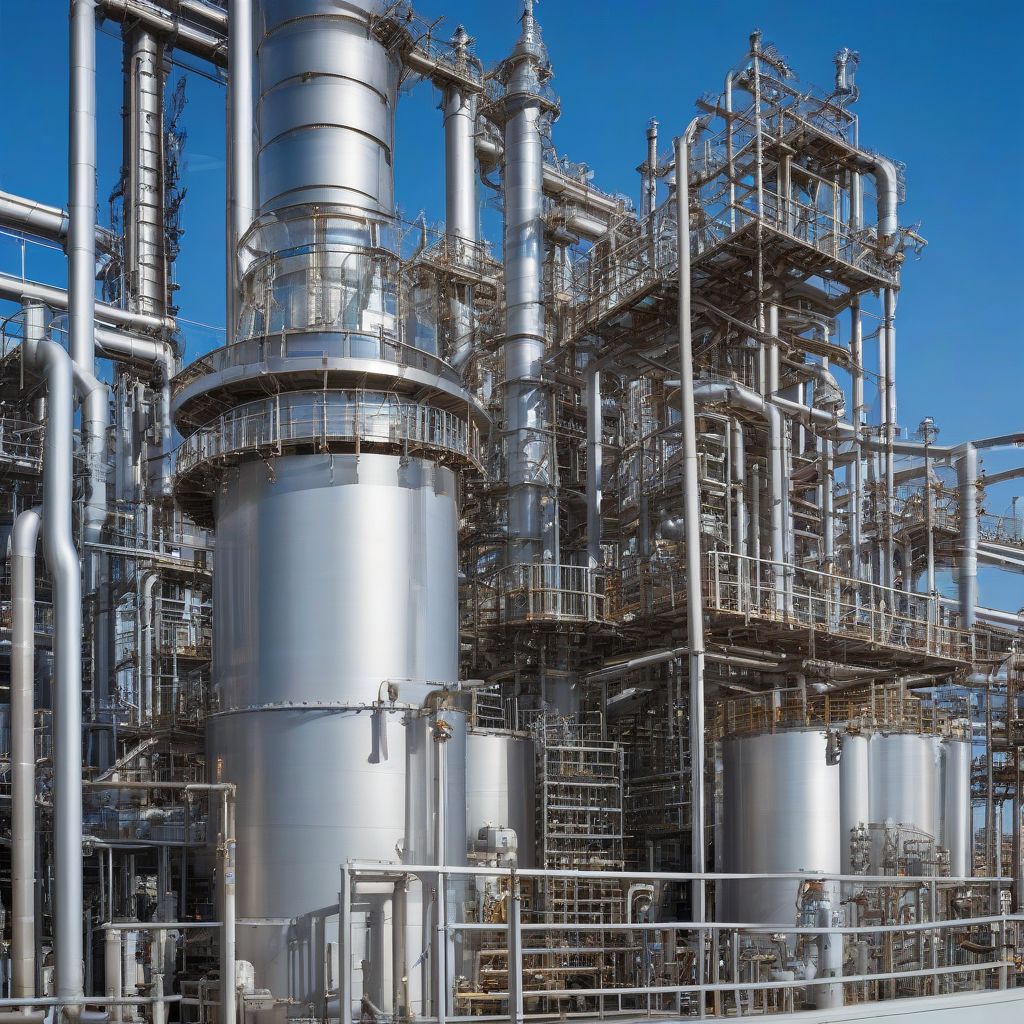What Does it Mean to Boil Natural Gas?
Natural gas is a vital energy source that powers homes, businesses, and industries worldwide. From heating our homes to generating electricity, natural gas plays a crucial role in our daily lives. But have you ever heard the phrase “Boil Natural Gas” and wondered what it meant? This article delves into the intricacies of natural gas processing, focusing on the intriguing process of “boiling” natural gas.
Understanding Natural Gas Processing
Before we explore the concept of boiling natural gas, it’s essential to grasp the basics of natural gas processing. Natural gas, extracted from deep underground reservoirs, is a complex mixture of hydrocarbons, primarily methane, along with other impurities like water, carbon dioxide, and heavier hydrocarbons. Before natural gas can be safely transported and used, it must undergo processing to remove these impurities and separate valuable components.
The Importance of Natural Gas Processing
Natural gas processing serves several critical purposes:
- Safety: Removing impurities like hydrogen sulfide makes the gas safe for transportation and use.
- Efficiency: Processing enhances the energy content of natural gas by separating out inert components.
- Environmental Protection: Removing contaminants reduces harmful emissions when the gas is burned.
- Product Diversification: Processing allows for the extraction of valuable byproducts like propane, butane, and natural gas liquids (NGLs).
Boiling Natural Gas: Separating the Essentials
“Boiling natural gas” refers to a specific stage in natural gas processing that involves cooling the gas to extremely low temperatures, causing certain components to condense or “boil off” at different temperatures. This process, known as fractional distillation, is crucial for separating natural gas into its constituent hydrocarbons.
gas.areview.net/wp-content/uploads/2024/09/natural-gas-processing-plant-66dff2.jpg" alt="Natural Gas Processing Plant" width="1024" height="1024">Natural Gas Processing Plant
The Science Behind Fractional Distillation
Fractional distillation relies on the principle that different hydrocarbons have different boiling points. By carefully controlling the temperature and pressure within a distillation tower, processors can separate the components of natural gas:
-
Cooling and Condensation: The natural gas stream is cooled to extremely low temperatures, typically below -162 degrees Celsius (-260 degrees Fahrenheit). As the temperature drops, heavier hydrocarbons with higher boiling points, such as propane and butane, condense into liquids.
-
Separation: The condensed liquids, now separated from the gaseous methane, are collected at different levels within the distillation tower based on their boiling points.
-
Methane Recovery: The remaining gas, primarily methane, rises to the top of the tower and is collected as purified natural gas.
Applications of “Boiled” Natural Gas Components
The fractional distillation process yields various valuable products, each with specific applications:
-
Methane: Purified methane is the primary component of natural gas used for residential, commercial, and industrial purposes. It fuels stoves, water heaters, furnaces, and power plants.
-
Propane: Widely used as a fuel for heating, cooking, and in various industrial processes.
-
Butane: Commonly used as a fuel in lighters and portable stoves.
-
Natural Gas Liquids (NGLs): This mixture of hydrocarbons serves as a feedstock for the production of plastics, chemicals, and other valuable products.
FAQs about Boiling Natural Gas
1. Why is it called “boiling” when the process involves cooling?
The term “boiling” in this context refers to the vaporization of hydrocarbons as they reach their respective boiling points, even though the overall process involves cooling the natural gas stream.
2. What happens to the separated hydrocarbons?
Each separated hydrocarbon is collected and stored separately for transportation and further processing or use.
3. Is boiling natural gas energy-intensive?
Yes, fractional distillation is an energy-intensive process requiring significant amounts of electricity or heat to achieve the necessary temperature changes.
Conclusion
“Boiling natural gas,” or fractional distillation, is a critical step in natural gas processing that enables the separation of valuable hydrocarbons based on their boiling points. This process ensures the safety, purity, and efficiency of natural gas as an energy source while also providing valuable byproducts for various industrial applications. Understanding the intricacies of natural gas processing highlights the complex journey this vital energy source undertakes before reaching our homes and powering our lives.
